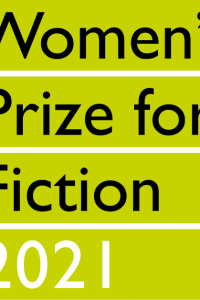Suzy McKee Charnas (1939-2023)
SF writer Suzy McKee Charnas, 83, died January 2, 2023. She was best known for her ambitious works that explored gender, sexuality, and feminist issues.
Suzy McKee was born October 22, 1939 in New York City. She attended Barnard College, where she studied economic history, and then served in the Peace Corps for two years in West Africa before getting a masters degree in teaching at NYU and working as a curriculum writer. She married lawyer Stephen Charnas in 1968, and they relocated to New Mexico around 1970, where she spent the rest of her life, occasionally teaching but mainly writing full-time. She has also taught at writing workshops, including Clarion and Clarion West.
Her career began with the Holdfast Chronicles, starting with Walk to the End of the World (1974) and continuing with Motherlines (1978), The Furies (1994), and Tiptree Award winner The Conqueror’s Child (1999). The Sorcery Hall trilogy is The Bronze King (1985), The Silver Glove (1988), and The Golden Thread (1989). Standalones include Dorothea Dreams (1986), The Kingdom of Kevin Malone (1993), Strange Seas (2002), and The Ruby Tear (1997, written as Rebecca Brand).
She was also an accomplished short fiction writer. “Unicorn Tapestry” (1980) won a Nebula Award and was included in collection of linked stories The Vampire Tapestries (1980), and feminist werewolf story “Boobs” (1989) won a Hugo Award. Some of her stories were collected in Moonstone and Tiger Eye (1991), Music of the Night (2001), and Stagestruck Vampires & Other Phantasms (2004). She also wrote a memoir, My Father’s Ghost: The Return of my Old Man and Other Second Chances (2002).
Her husband predeceased her in 2018. She is survived by her stepchildren and grandchildren.
For more, see her entry in The Encyclopedia of Science Fiction.







I have been awestruck by every Suzy McKee Charnas story I’ve ever read, and highly recommend them to anyone who hasn’t read her work yet. (With this heads-up: you will probably be horrified and disgusted by some characters’ decisions; you may be pain- or grief-stricken on some characters’ behalf; and there may be substantial overlap between those sets of characters.)
I read “Vampire Tapestry” first and loved it (along with “Dorothea Dreams,” “Listening To Brahms,” and every Charnas short story that I’ve been able to find), but the books of the Holdfast Chronicles have been among the strongest influences on my own writing and my understanding of what’s *possible* to accomplish as a writer, both in worldbuilding and in Charnas’s stunning, poignant, and often horrifying portrayals of realistically complex and flawed human characters. I reread the Holdfast Chronicles over and over again as a teenager – in the same way and at about the same time as I was repeatedly cycling through Octavia Butler’s novels – and, between both of their works (with some supplemental Le Guin and Atwood!), I can’t think of many better ways for my younger self to get a sometimes-painful but safe and artistically educational crash course in the vast range of thoughtfulness, kindness, rebellion, complicity, and callousness or cruelty that a single person can possess and act upon (and that an author can portray within a single character’s time on a book’s pages). In different ways, but with similar clarity and storytelling skill and beauty, I think both Charnas and Butler showed how a fundamentally flawed society can hamper but not necessarily obliterate the moral choices of people in that society, and that a person’s willingness and ability to act ethically in one situation doesn’t mean they won’t fumble another situation. (Or even be 100% despicable for a few pages – yes, I’m looking at you, Eykar Bek, a character whom I’m still not completely sure what to make of. But, hey, people can grow and improve too – I actually liked Sheel by the end of “The Conqueror’s Child,” which I never would have expected when I first read “Motherlines”!)
I wish now that I’d written to Charnas herself to say all of this. Thank you so much for your work, Ms. Charnas, and all that your novels taught me about both science-fiction artistry and about life as an inherently complicated and imperfect (but potentially good) human in a flawed (but potentially improvable) society.
Saddened and honestly stunned to hear of Ms. Charnas’ passing—I met and admired her personally, and then connected with her remarkable body of work. She was a generous mentor and a good influence. I owe her.